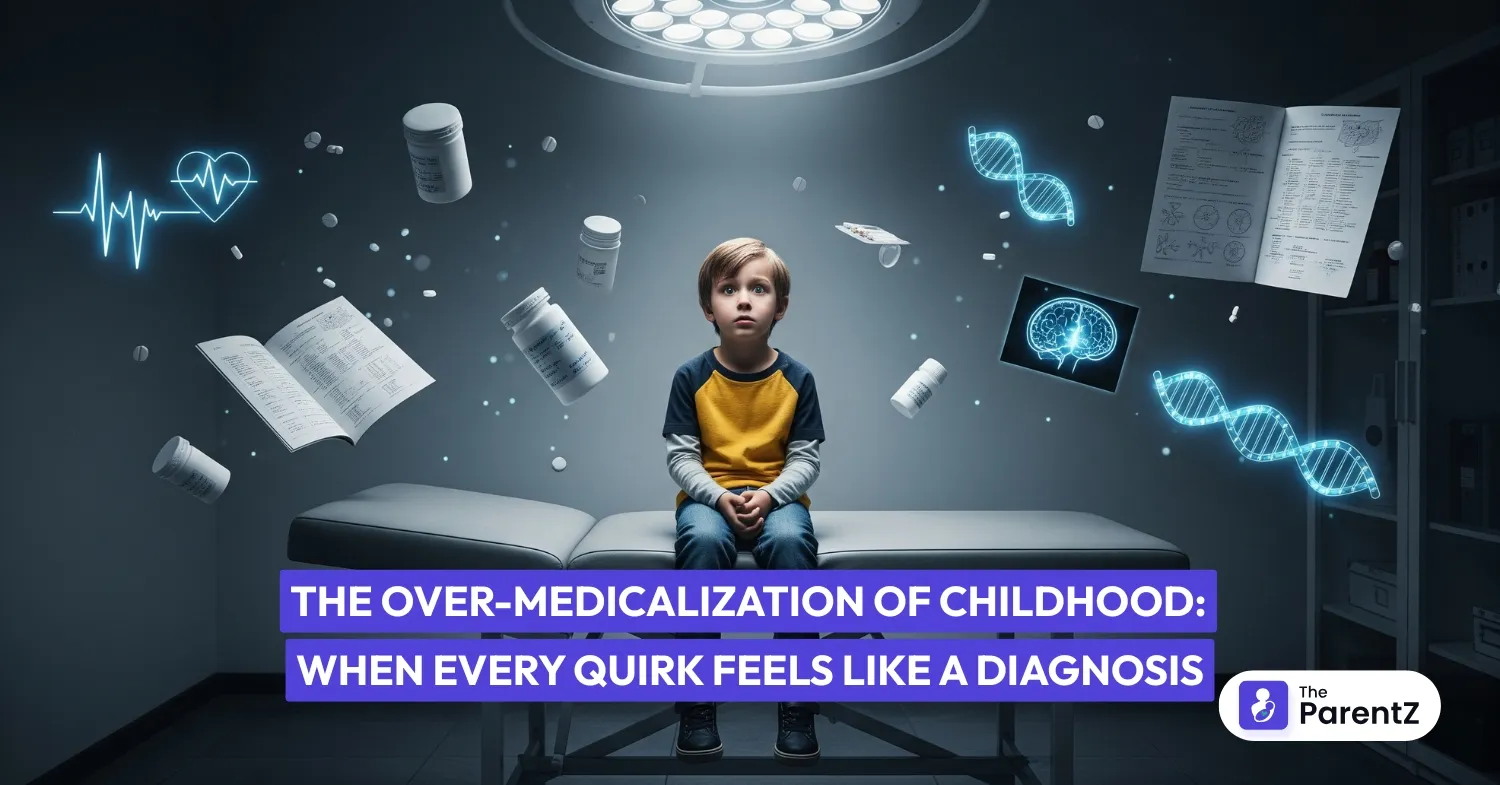You're scrolling through your phone at 11 PM, and suddenly you see a post about autism symptoms. Your heart skips a beat because your 4-year-old struggles with eye contact sometimes. Or maybe you read about ADHD, and now you're wondering if your energetic 6-year-old who can't sit still during dinner actually has a condition.
You're not alone in this. Every parent has been down this rabbit hole at least once.
The Information Age Has Changed Everything
Twenty years ago, if your kid was a little different, you might have shrugged it off or asked your mom what she thought. Today? We have endless information at our fingertips. Social media is full of parents sharing their stories about ADHD, autism, anxiety, and dozens of other conditions. And honestly, this awareness has been amazing in many ways.
Kids who actually need help are getting diagnosed earlier. Parents aren't feeling ashamed anymore about seeking support. The stigma around mental health and developmental differences is slowly fading away.
But here's the thing nobody talks about: sometimes, all this information becomes too much.
When Normal Becomes "Not Normal"
Your 3-year-old doesn't want to share toys? Must be a social development issue.
Your 5-year-old is picky about food textures? Could be sensory processing problems.
Your 7-year-old daydreams during homework? Maybe it's ADHD.
Sound familiar?
Here's what's happening: we're taking normal childhood behaviors and putting them under a medical microscope. Kids have always been quirky. They've always had phases where they're clingy, or stubborn, or overly energetic, or unusually quiet.
The difference is that now we have names for everything. And when you have a name for something, it starts to feel like a real problem that needs fixing.
The Google Trap Gets Worse with Kids
You know how you can Google "headache" and end up convinced you have a brain tumor? The same thing happens with our children, but it's so much worse because our protective instincts kick in.
When it comes to your child, every symptom feels urgent. Every behavior that doesn't fit the "normal" box becomes scary. You start seeing patterns everywhere because you're looking for them.
We've watched parents become convinced their perfectly typical toddler has autism because he lines up his cars sometimes. Or worry their dreamy 8-year-old daughter has ADHD because she forgets her backpack occasionally.
Why This Happens to Good Parents
You're not being dramatic or overprotective. This is happening because:
- You care deeply about your child: Of course, you want to catch any problems early. You've heard that early intervention is key, and you don't want to miss something important.
- The internet makes rare things seem common: When you see 50 posts about autism in a week, it starts to feel like every other child has it. But that's not reality, you're just seeing a concentrated view of people sharing their experiences.
- Normal childhood development is actually pretty weird: Kids go through phases that would seem strange in adults. They have intense interests, they struggle with emotions, and they have sensory preferences. This is all normal, but it can look concerning when you're reading about clinical symptoms.
- You're comparing your real child to online highlights: Other people's kids always seem more "together" on social media. But you're seeing edited versions of other families, not their daily reality.
When This Hurts More Than It Helps
Over-medicalizing your child can actually cause problems, even when you have the best intentions.
- It changes how you see your kid: Once you start looking for problems, you might stop seeing their strengths and uniqueness. That creative, energetic spirit becomes "hyperactivity." Their strong preferences become "rigidity."
- It creates anxiety for everyone: Kids pick up on your worry. If you're constantly analyzing their behavior, they start to feel like something's wrong with them.
- It can lead to unnecessary interventions: Therapy, medications, and special accommodations aren't harmful in themselves, but they are when a child doesn't actually need them.
- It misses the real issues: When you're focused on whether your child has ADHD, you might miss that they're actually struggling because they're not getting enough sleep, or they're stressed about something at school.
So What Can You Do?
- Take a step back: If you find yourself constantly analyzing your child's behavior, try to remember what they were like before you started researching conditions. Are the behaviors you're worried about actually new, or have you just started noticing them?
- Look at the big picture: Is your child generally happy? Are they learning and growing? Do they have friends? Can they function in their daily life? These matter more than individual symptoms.
- Trust your gut, but not Google: You know your child best. If something truly feels off and not just different, but actually problematic, then by all means, seek professional help. But if you only started worrying after reading about it online, pause and think.
- Talk to real people: Chat with other parents in person, not just online. Ask your child's teacher how they're doing compared to other kids their age. Sometimes an outside perspective can be really reassuring.
- Remember that kids develop at their own pace: The child who's behind in social skills at 4 might be the most popular kid in their class at 8. Development isn't a straight line.
Conclusion
We are not suggesting that you ignore red flags or avoid seeking help when you need it. Some children really do have conditions that benefit from early intervention. The key is learning to tell the difference between genuine concerns and normal childhood quirks that have been pathologized by information overload.
Your child doesn't need to be perfect or "typical" to be perfectly fine. Those little quirks that make them unique? They might just be part of who they are, not symptoms of something that needs to be fixed.
Sometimes the best thing we can do as parents is resist the urge to turn everything into a diagnosis and just let our kids be kids.
Trust yourself. Trust your child. And remember that most of the time, different doesn't mean broken.





Be the first one to comment on this story.